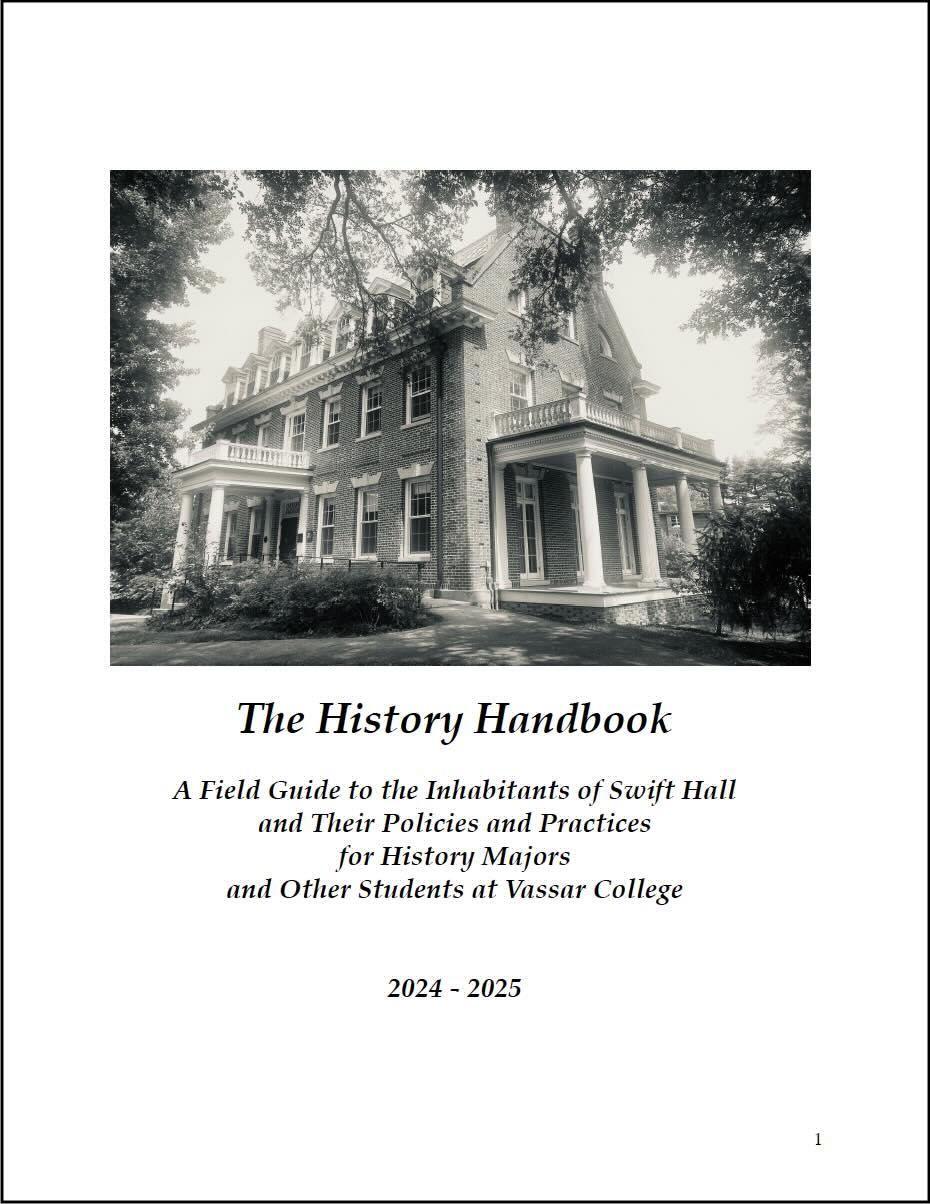Courses and Requirements
Academic requirements and courses are available in the Vassar College Catalogue.
Major
Correlate Sequence in History
The History Department offers a variety of courses from the introductory (or 100 level) to advanced (300 level) seminars. Some are specific in content, focusing on one person or event; others are broad in scope. What they all share is that each class goes to the source, introducing you to an exciting range of written and visual materials, critical historical theory, and a fresh, hands-on approach. We offer an exciting experience that is a voyage of discovery, not rote learning of facts and dates.
Combining aspects of art and science, history not only expands the mind but also provides critical tools to select, organize, and interpret all manner of evidence. The Vassar history faculty invite students not to take multiple-choice tests, but instead to become historians themselves. We challenge students at all levels to come face to face with the past by wrestling with the original sources upon which all history is based. Our aim is to help students develop capacities for independent research, critical analysis, and imaginative synthesis. We vary widely in our teaching approaches. What we share are the convictions that research, teaching, and learning are inextricably linked, and that teachers and students share in the experience of historical inquiry.
The department’s courses extend from the Middle Ages to the present and from the Americas to Europe, Asia, Africa, and the Middle East. The sources we use are equally wide-ranging since history encompasses literature and art, philosophy and religion, scientific debates and discoveries, and photographs and film as well as more conventional texts and topics. History majors not only receive a superb education; they leave Vassar carrying intellectual passports that help them open new realms for a lifetime.
The resources of the World Wide Web are only one of many ways to extend our historical inquiries and conversations beyond the classroom. Independent projects involve frequent consultation with a faculty advisor. Ford Scholars work closely with professors for a summer, while the Clark Fellowship provides stipends for students’ off-campus research. Many history majors enrich their educations by spending all or part of their junior year in locations ranging from the U.K. to Morocco to China.
Header image: Ludger tom Ring, the younger (German, 1522–1584), The Open Missal, 1570, Oil on oak panel transferred to masonite, Purchase, Mrs. John D. Rockefeller 3rd (Blanchette Hooker, class of 1931) Fund, Photo credit: The Frances Lehman Loeb Art Center
